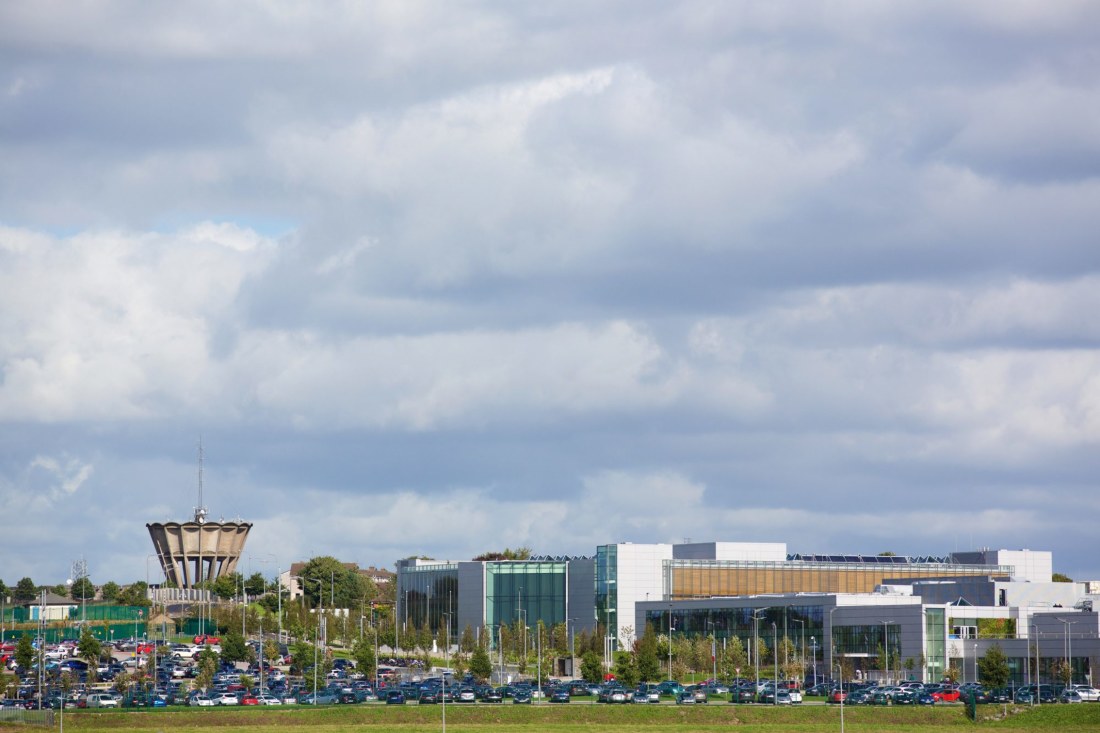Ireland is booming as Britain languishes, despite Brexiteers saying their closest EU neighbour would be ‘doomed’. Here’s why

Ireland’s membership of the EU – and of its customs union in particular – has “allowed Irish businesses to hugely expand their reach, and not just rely on the big neighbour next door”, says Lucey.
Certain areas of the Irish economy have flourished in recent years, capitalising on the country’s access to a market of 450 million people, and its 12.5 per cent corporate tax rate.

President Joe Biden meets members of the local public on April 12 in Dundalk. Getty
Ireland’s tech sector, for example, has led to Alphabet, Amazon, Apple, Facebook, Intel and Microsoft setting up major operations in the country, and Ireland’s 106,000 tech workers are five times more productive than the European average, the ESRI says.
The country’s pharma sector is another success story, with nine of the world’s 10 largest pharmaceutical companies building plants in the country. Ireland is now the largest net exporter of pharmaceuticals in the EU, and its products account for over 50 per cent of all exports from the country.
Ireland has drawn international companies to establish subsidiaries in the country because of its low-tax regime, educated workforce, stable political background and its use of the English language. It used to compete with the UK as a European base for such multinationals. But now Ireland is the only EU country where English is most inhabitants’ first language.
There has been a “steady trickle” of companies moving operations from the UK to Ireland, says Lucey. Dublin’s financial sector has been a particularly big winner: the city attracted 135 financial companies between mid-2016 and early 2021 – about a quarter of all finance companies’ Brexit-related moves, a report by the think tank New Financial says.
Economic opportunity
Ireland’s appeal is enhanced by its low corporate tax rate, whereas the UK’s is rising to 25 per cent from 19 per cent this year. This may help explain why, according to a recent report from a US-Ireland business report by the American Chamber of Commerce, that both the US and Ireland further attain “record levels of growth and investment”. In 2022 alone there were 167 new US investment announcements in Ireland.
“Following Brexit, Ireland stands as the trans-Atlantic gateway to the European Union,” wrote the Sinn Féin leader Mary Lou McDonald in the American Chamber of Commerce report. “There is no good Brexit for Ireland, but the economic opportunity is clear.”
In 2021, UK trade only accounted for 13 per cent of Irish exports, and 20 per cent of Irish imports. These statistics also mean that Ireland is one of just seven EU countries that the UK has a trade surplus with, which was worth €5.4 billion ($8.3 billion) in 2020.

Apple’s headquarters in in Cork, Ireland. Bloomberg
The UK’s departure from the customs union led to its trade surplus with Ireland shrinking to €1.3 billion in 2021. “It is very strange to us here in Ireland to witness such an own goal,” says Lucey.
“With the UK, it’s literally a case of ‘you need us more than we need you’ because Ireland is one of the few countries with whom the UK runs a good trade surplus.”
Irish exports have been “powering ahead” into the UK since it left the customs union, adds McQuinn. They rose 24 per cent in 2021 year-on-year. This is in part because the UK has not been implementing customs checks on its side to avoid hindering the flow of goods into the country. The EU has been implementing its checks, however, creating tailbacks in the UK and hitting UK exports.
“The UK could have had [a softer] Brexit and nobody would have noticed, and everybody would have been happy,” says Lucey. “But the way in which the politics worked out, you ended up with the hardest possible Brexit, which nobody was overtly looking for in the early years.”
It is not all positive. Ireland has also been hit by high inflation and cost-of-living pressures, while economists point out that Irish GDP figures are typically inflated by foreign multinationals reporting profits in the country.
Even if Brexit has presented as many opportunities as problems for Ireland, other events in the UK could yet throw the country off-track.
“The major concern for Ireland is geopolitical: the destabilisation of the Union,” warns John FitzGerald, the former head of macroeconomics at ESRI. “The danger of Scottish independence creating an orphan Northern Ireland [which retains strong cultural and religious ties with Scotland] is very real. And the cost of Irish reunification could result in a real crisis on the island.”
For now, however, Brexiteers’ warnings about poor Irish prospects have not played out.
“From a headline point of view, the Irish economy is doing well,” says McQuinn. “Irish firms are switching from the UK to the EU for supplies, which may cause problems for the UK, but represents only limited hassle for Ireland.”
— New Statesman






